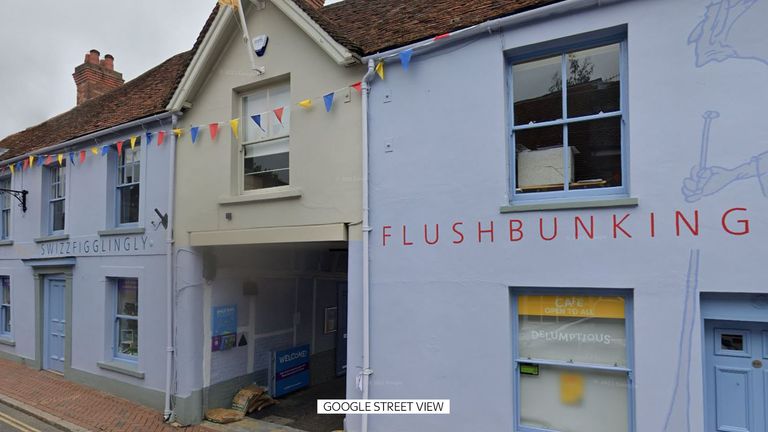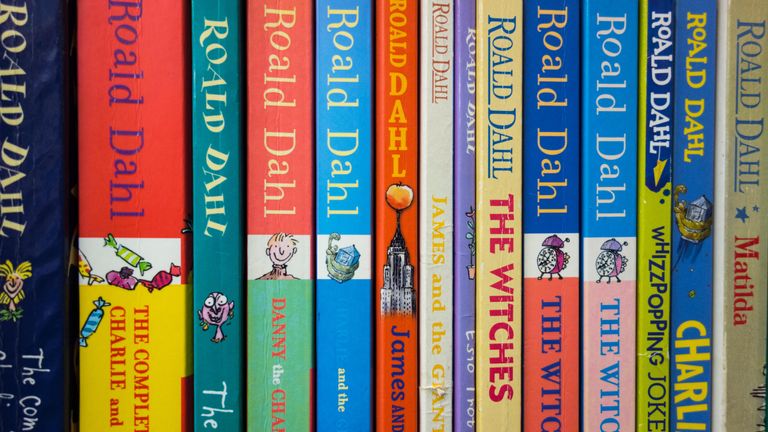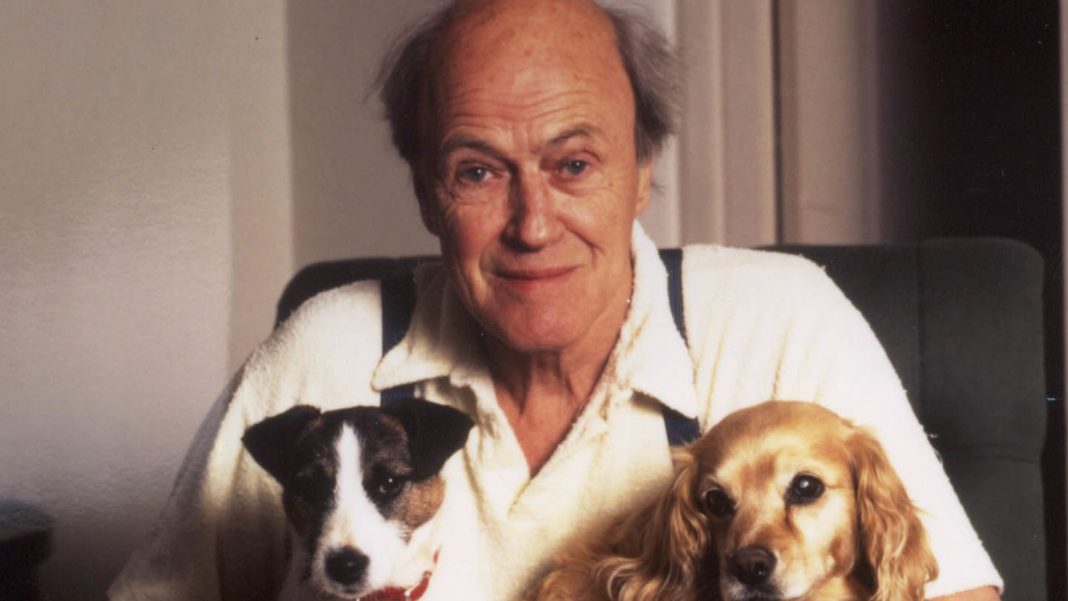Roald Dahl’s racism was “undeniable” and “indelible”, says the museum that bears the name of the controversial children’s author.
The charity, which was founded in 2001 by Dahl‘s widow Liccy, said in a statement on its website it “condemns all racism directed at any group or individual”.
The Roald Dahl Museum, which is in Great Missenden, Buckinghamshire, said it will work to combat racism by being “more welcoming, inclusive, diverse and equitable”.
And it said its staff have been given training to prevent antisemitism.

The Roald Dahl Museum
In 2020, his family apologised for “antisemitic comments” made by the late author, saying his previous remarks were “incomprehensible”.
It came amid concerns the comments could damage his legacy – which continues to live on while his estate signs deals with broadcasters to adapt his books.
Dahl’s words, his relatives wrote three years ago, “stand in marked contrast” to the man they knew.
Now the museum, which first opened its doors in 2005, has written on its website: “The Roald Dahl Museum condemns all racism directed at any group or individual.
“Roald Dahl’s racism is undeniable and indelible but what we hope can also endure is the potential of Dahl’s creative legacy to do some good.”
The museum said it does not “repeat Dahl’s antisemitic statements publicly”, but it does keep a record of what he wrote and said in the museum’s collection “so it is not forgotten”.
The charity said it has been working with several Jewish groups including the Board of Deputies of British Jews, the Jewish Leadership Council, the Community Security Trust, and the Antisemitism Policy Trust to develop resources for schools.
This will include free educational materials for primary pupils which will encourage them to look at the United Nations Convention on the Rights of the Child (UNCRC) through Dahl’s characters.
Board of Deputies president Marie van der Zyl “welcomed” the charity’s statement which was also placed on a wall of the museum.
‘Important starting point’
Ms van der Zyl said: “The new statements – in their entrance gallery and on their website – are an important starting point with regard to providing the full story about a man whose works are enjoyed by millions.
“I look forward to working with the museum more closely to explore further ways to raise awareness on this issue and educate about anti-Jewish hate.”

In February, Puffin UK said it would keep Dahl’s work as intended in print with the current versions after criticism of recent editing of his work to remove potentially offensive language.
The publisher said the classic collection will sit alongside the newly-released Dahl books for young readers, which have been rewritten to “cater for the sensitivities of modern audiences”.
The author of Charlie and the Chocolate Factory and Matilda died in 1990 aged 74.







